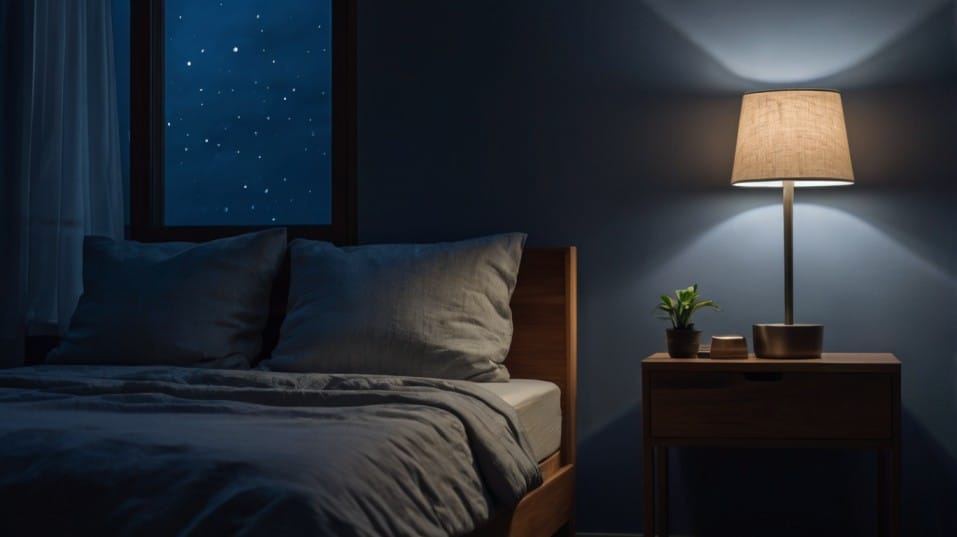Which Supplements Support Natural Sleep Cycles?
Struggling with sleep? Discover how smart supplementation can reset your rhythm and boost energy, recovery, and clarity—naturally.

Struggling to fall asleep even after cutting caffeine and screens? What if your body isn’t broken—it just needs a reset?
Certain supplements can nudge your internal clock back into sync, helping you fall asleep naturally and wake up clear-headed.
This isn’t about knocking yourself out—it’s about teaching your body to remember how to sleep. Here’s how to use science-backed tools to realign your rhythm and finally get the rest you’re built for.
Why Your Natural Sleep Cycle Matters
Sleep isn’t just about how long you’re in bed. It's about when your body thinks it's supposed to be sleeping.
That’s your circadian rhythm—the internal clock that runs on a 24-hour loop and controls everything from melatonin production to core body temperature to hormone release.
Light exposure is its biggest influencer. So is when you eat, how you move, and what time you wake up. When this rhythm gets thrown off—by stress, travel, screen time, or just staying up late—your brain and body stop syncing.
You feel groggy in the morning, wired at night, and everything from recovery to focus suffers.
This is where targeted supplementation makes a difference. Not to sedate you, but to help recalibrate your rhythm.

Melatonin: Reset the Clock, Don’t Smash It
Melatonin isn’t a sleep drug. It’s a hormone your brain naturally releases when it gets dark. It’s the biological equivalent of dimming the lights before a show—it sets the stage for sleep.
When your schedule’s off—like after a red-eye flight or a weekend of staying up till 2 a.m.—a low dose of melatonin (0.3 to 1 mg) can help shift your sleep phase earlier. It’s not about taking more. It's about timing.
Take it 30 to 60 minutes before your ideal bedtime, and pair it with low light and zero screens. You’re not knocking yourself out. You’re telling your body, “Hey, it’s nighttime.”
Magnesium: Your Nervous System’s Off Switch
Magnesium is involved in over 300 biochemical reactions in your body. One of its biggest jobs? Helping your nervous system chill out.
It does this by supporting GABA, a neurotransmitter that tells your brain to relax. Without enough magnesium, your muscles stay tense, your brain stays wired, and deep sleep becomes rare.
For better absorption and fewer digestive issues, go with forms like magnesium glycinate or magnesium threonate. Take it about 1–2 hours before bed. This one’s especially helpful if you deal with:
- Stress-related insomnia
- Muscle tightness or twitching at night
- Frequent middle-of-the-night wakeups
Think of it as nutrient-level calm—not a sedative, but a physiological signal that it’s okay to shut down.
L-Theanine: Cut the Mental Noise
If your body feels tired but your brain won’t stop spinning, L-theanine might be the missing piece. Found in green tea, this amino acid helps increase alpha brain waves—the state associated with calm focus and gentle transitions into sleep.
It doesn’t make you drowsy. It smooths out the internal dialogue that tends to ramp up the second your head hits the pillow.
Take 100–200 mg in the evening, especially if you:
- Work late or switch from high-output mental tasks straight into bedtime
- Get anxious at night
- Feel overstimulated from caffeine, screens, or stress
L-theanine is often stacked with magnesium for even better calming effects, especially for people who want to fall asleep without feeling “drugged.”
Glycine: Deeper Sleep Through Temperature Control
Your body needs to drop its core temperature to fall into deep, restorative sleep. Glycine helps trigger that cool-down process.
It also plays a role in REM and slow-wave sleep—the most restorative stages where memory, hormone balance, and physical recovery take place.
What makes glycine stand out? It promotes better sleep without making you feel groggy the next day.
Try 3 grams about an hour before bed, mixed with water or collagen. It works even better if you also keep your bedroom cool and dark—around 65–68°F is ideal.
Ashwagandha: Calm Your System, Sleep More Naturally
Ashwagandha isn’t a sleep aid in the classic sense. It’s an adaptogen, which means it helps your body adapt to stress by regulating cortisol levels. High cortisol at night is one of the most common reasons people can’t fall—or stay—asleep.
This herb works best when used consistently over time. It’s not a knockout. It’s a stress buffer. When your nervous system stops treating every email like a tiger attack, falling asleep becomes easier.
Look for KSM-66 or Sensoril extract, and take 300–600 mg daily, ideally in the evening. You’ll likely notice a difference in sleep latency (how fast you fall asleep) and sleep depth after about 1–2 weeks.
Honorable Mentions That Deserve Attention
There are other compounds that can fine-tune your routine if you're already covering the basics:
- 5-HTP: A precursor to serotonin, which supports melatonin production. Best used under guidance since it affects mood.
- Tart cherry extract: Naturally contains melatonin and helps with sleep duration. Great for recovery-heavy routines.
- Apigenin: Found in chamomile. Works as a natural GABA booster. Pairs well with magnesium for gentle sedation.
- Phosphatidylserine: Lowers nighttime cortisol for people whose stress hormones spike in the evening.
These aren’t essentials for everyone, but they can be useful if you’ve dialed in the basics and want an edge.
How to Make It Work: Real-World Application
Supplements only help if the rest of your sleep hygiene isn’t working against them. That means:
- Consistent sleep-wake times (even on weekends)
- Morning light exposure (10–15 minutes of sunlight right after waking)
- Wind-down rituals (low light, no work, and no screens at least 30 minutes before bed)
- Cool, quiet, dark environment (your bedroom should feel like a cave)
Start small. Pick one or two supplements that fit your needs. Use them consistently for 2–3 weeks before adding anything else.
Don’t expect to pop a pill and suddenly sleep like a monk. This is about creating conditions where your body remembers how to rest.
Final Thoughts
Sleep doesn’t need to be complicated. You just need to align your biology with your lifestyle.
The right supplements—used with purpose—can help restore your body’s natural rhythm, leading to better energy, deeper recovery, sharper focus, and real results.
Start with one adjustment tonight. Maybe that’s 200 mg of magnesium glycinate or a low dose of melatonin at the right time. Build the habit. Track how you feel. Let your body lead. Your best sleep is built—one night at a time. Start now.




